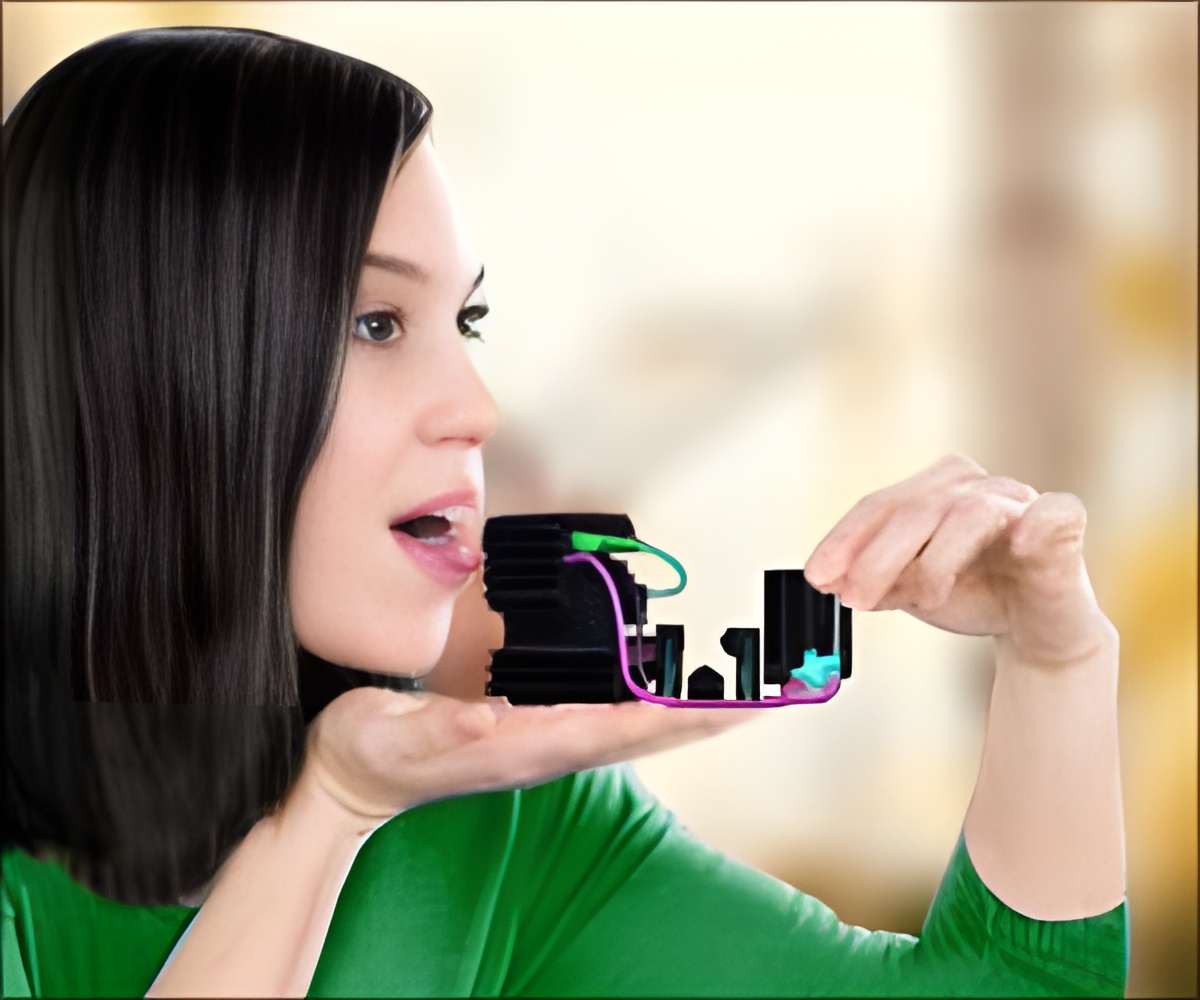A new digital taste simulator may help you taste foods prepared by your favorite chef right from TV! Here’s how…

A team of researchers led by a Sri Lankan origin scientist Nimesha Ranasinghe have now developed a special electrode which can replicate sweet, salty, bitter and sour tastes when placed on the tongue. This new marvelous discovery doesn’t just limit itself to producing sensations of taste-it also introduces small changes in temperature to modify and enhance the taste experiences of the user.
According to Dr Ranasinghe, this system would, in the future, allow television viewers to share their meals online too!
Currently, this team of researchers is now working on developing another unique creation-a digital lollipop, which will allow users to experience the sweetness of the candy without adding on the calories and thereby reducing the risk of putting on weight and affecting their dental health.
“Digital taste is a technology for digitally simulating the sensation of taste,” Dr Ranasinghe explained. “It uses two methods-electrical stimulation and thermal stimulation to stimulate the tip of the human tongue non-invasively in order to produce primary taste sensations such as salty, sour, sweet, bitter.”
While previous attempts by scientists at developing “taste TV”, having similar motives was unsuccessful, this new technology allows tastes to be sent digitally without the use of expensive chemical interfaces.
Apart from adding the fifth taste, the savoury “umami” tang, the researchers will also be focusing on digitally replicating the smell and texture effects to make the “taste TV” experience wholesome.
“People with diabetes might be able to use the taste synthesizer to simulate sweet sensations without harming their actual blood sugar levels. Cancer patients could use it to improve or regenerate a diminished sense of taste during chemotherapy,” Dr Ranasinghe believes.
Source-Medindia









